In the vast realm of Wikimedia projects, collaboration knows no bounds. On the path to building engaged communities of users, a remarkable cooperation occurred between the Tyap Wikimedians User Group (TWUG) and the Wikimedians of Romania and Moldova User Group (WMROMD). This pilot project aimed to foster cultural exchanges and contribute to language preservation by translating articles from English to Tyap and Romanian Wikipedia editions. Let’s delve into the details of this unique initiative!
The journey of this project began at a Let’s Connect Learning Clinic on managing minor affiliates with Wikimedia Ireland and Wikimedia Romania and Moldova on 24 March 2023. After Kambai Akau from TWUG and Claudia Serbanuta from WMROMD participated the session, inspired by their shared passion for language preservation and cultural exchange, they began planning for a collaborative project.
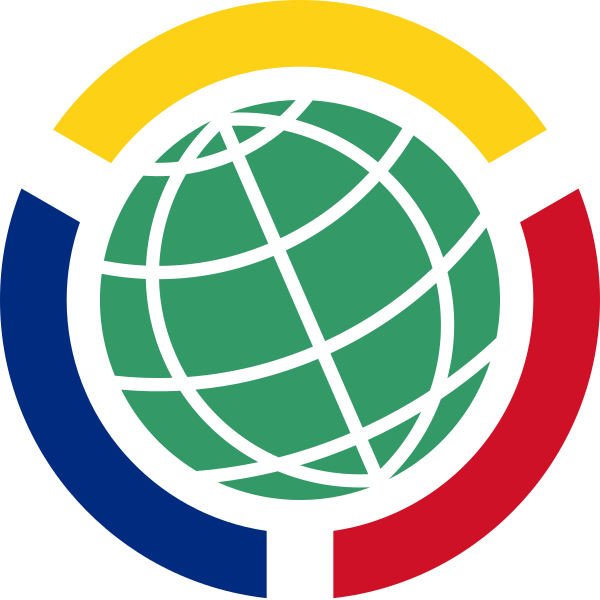
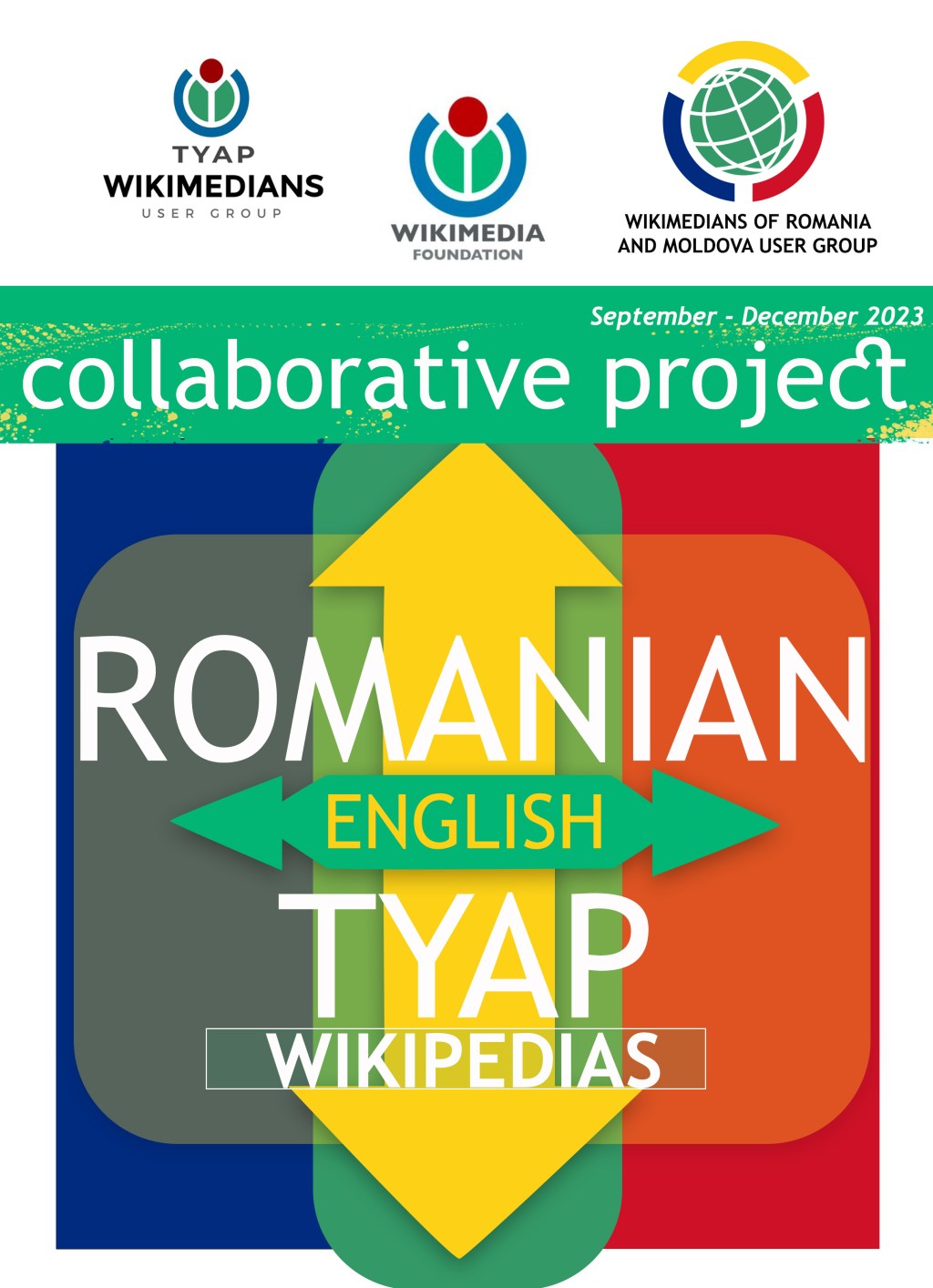
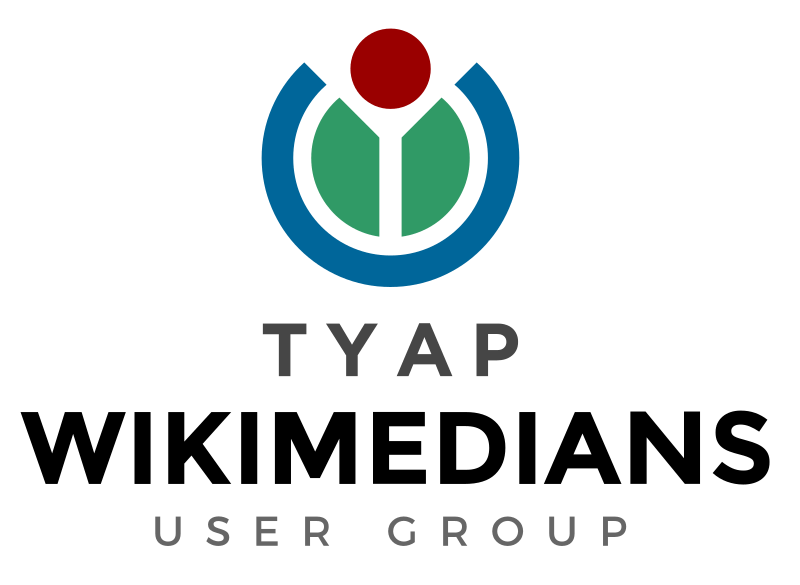
Although both Claudia and Kambai had no previous experience on international collaborative wiki projects, they met several times to chart a way forward for transforming ideas into a project. They fixed the starting date for the project in September and hoped to culminate the project by December of the same year.
The Tyap and Romanian languages context and the translation project idea
The Tyap language, a Niger-Congo language, is spoken by over 250,000 people in the Southern part of Kaduna State, Middle Belt, Nigeria. Unfortunately, Tyap is an endangered language, with many parents and grandparents no longer passing it on to younger generations. However, organizations like the Tyap Language Development Board (TLDB) and the Tyap Wikimedians are working diligently to revive and preserve this rich linguistic heritage.
In contrast, Romanian is an East Romance language spoken by over 28 million people in the Balkans of Southeastern Europe. It holds continental status within the European Union and plays a vital role in the region’s cultural and linguistic landscape.
The primary objective of this pilot project was to facilitate cultural exchanges between the Tyap and Romanian communities. The idea of the project was for participants to translate articles from the English Wikipedia into their respective languages. Tyap Wikimedians focused on solving articles related to the Romanian people, while the Romanian Wikipedians dedicated their efforts to articles about the Atyap people.
The project aimed to enhance understanding, promote cultural diversity, and preserve valuable knowledge within these vibrant communities by bridging linguistic barriers. It provided an opportunity for participants to explore different cultures, expand their language skills, and contribute to the enrichment of their respective language editions.
Getting started
After the page for the pilot project was created on Meta-Wiki and the list of suggested articles was posted, both user groups engaged their volunteers. Between 16 and 17 September 2023, the TWUG team met in Kaduna, Nigeria, for a physical meeting towards the project. This also allowed those who needed clarification on particular aspects of editing to ask for such in person.
On 2 October 2023, the two teams held their first meeting together with Claudia Serbanuta, Elena Ancu Damian, and Alexandra Stefanescu in attendance from WMROMD and Kambai Akau, Friday Kuyet Musa, Valentine Yambwat Didam, Dorothy Katyak Habila, Mashan Genesis Kambai, and Zwandien Bobai present from TWUG. Claudia and Kambai co-hosted the meeting.
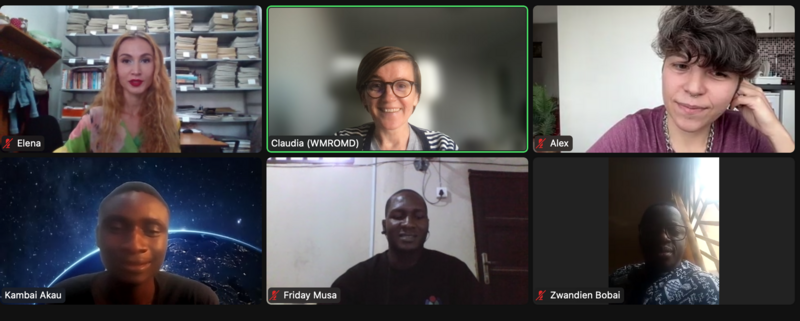
On 22 November 2023, Elena Ancu Damian, a librarian and a member of the Romanian team, delivered a presentation on the pilot project at the County Library, I.A. Bassarabescu Giurgiu, Romania. This presentation served as an opportunity to showcase the achievements, highlight the importance of cross-cultural collaboration, and raise awareness about the ongoing project’s goals and outcomes.
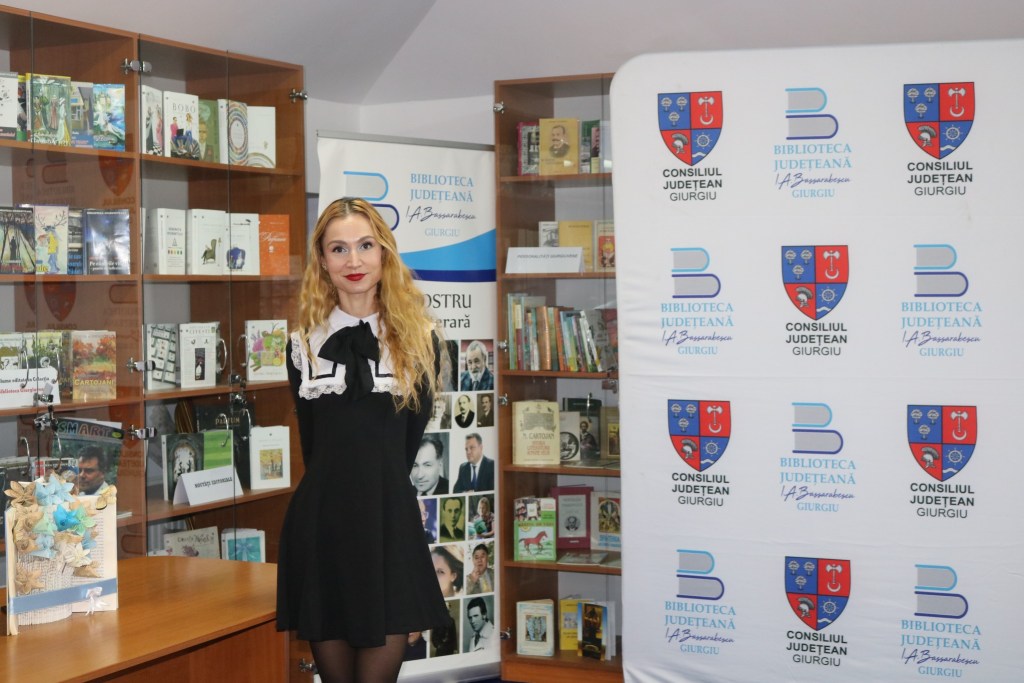
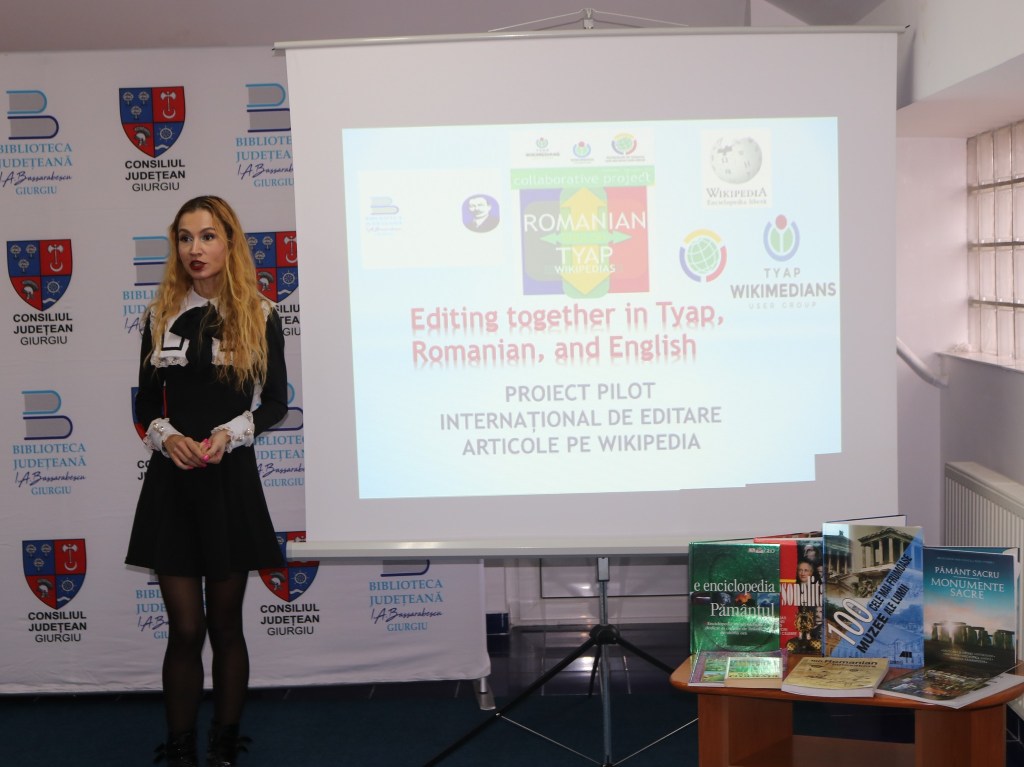
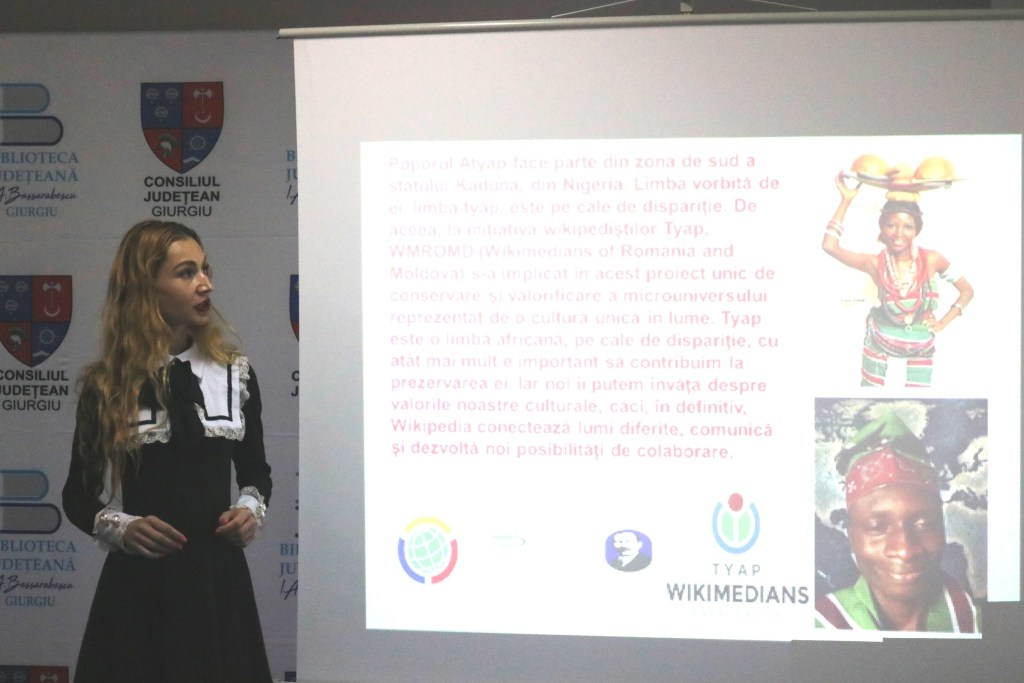
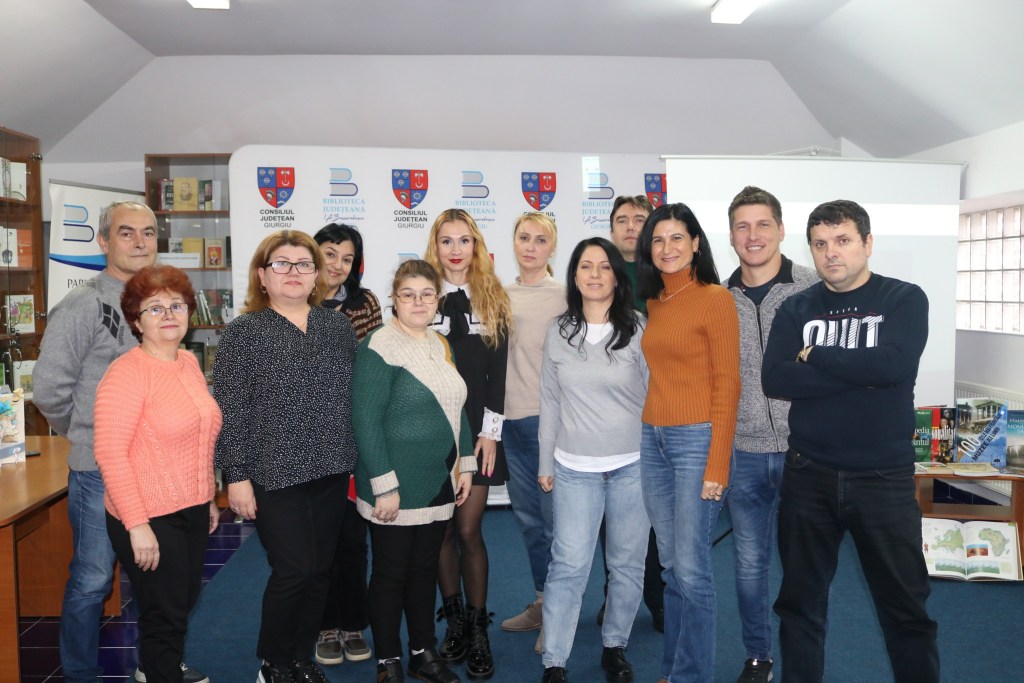
The plan was to translate 10—15 articles per participating Wikipedia. However, these became insufficient as more were added on both sides. As a result over 50 Wikipedia articles have been translated into Tyap and Romanian. On the WMROMD team, Elena made the most edits in the Romanian Wikipedia. Meanwhile, on the TWUG team, the most in the Tyap Wikipedia was created by Kambai.
The Significance
This cross-cultural collaboration managed to bring significant results. Firstly, it promotes language preservation and revitalization. By translating articles into Tyap, the project contributes to groups like the Tyap Wikimedians User Group’s efforts to revive the language among the younger generation.
Moreover this provided a great learning and reflection opportunity on the development of languages, as Kambai Akau shares:
“Through this project, I discovered that a language can grow by having less than 2,500 words in its lexicon to have over 150,000 through the act of lexical permeability like in the case of Romanian. Tyap seems to me to be where Romanian was in the late antiquity period and with our current efforts in modernizing the language, Tyap can step up and become a thriving language like Romanian. Limba română can be a role model for a̱lyem Tyap . Needed words can be assimilated from Plateau languages to enrich the Tyap vocabulary just as Latin languages to Romanian. My understanding is really widened through this project.”
The project fosters intercultural understanding and appreciation. Participants gain insights into different histories, traditions, and ways of life by translating articles about the Romanian and Atyap people. This paves the way for a deeper understanding and respect for cultural diversity.
The Tyap-Romanian-English pilot project is a shining example of the power of collaboration and cultural exchange within the Wikimedia community. This project inspires future collaborations, showcasing the potential for cross-cultural initiatives to bridge gaps, preserve languages, and promote intercultural dialogue. As the global Wikimedia community grows and flourishes, such endeavors will undoubtedly contribute to a richer, more inclusive knowledge ecosystem.
Kudos to the Wikimedians of Romania, the Moldova User Group, and the Tyap Wikimedians User Group for their innovative and impactful collaboration! Their dedication and passion have fostered cultural understanding, preserved languages, and enriched the Wikimedia platform.

Can you help us translate this article?
In order for this article to reach as many people as possible we would like your help. Can you translate this article to get the message out?
Start translation